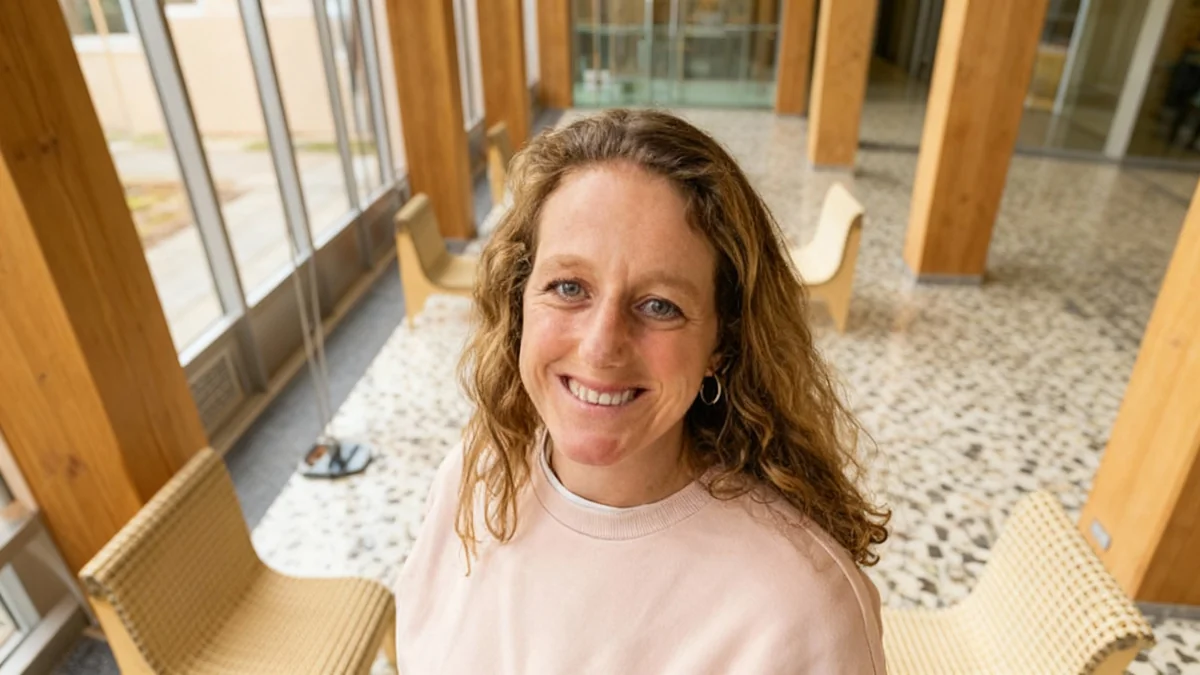Bern's pilot emergency shelter for Finta individuals and women, which opened in June 2025, has been operating at full capacity since July. This high demand highlights a critical need for specialized housing solutions for a vulnerable population often overlooked by general homeless services. The facility offers unique features, including private rooms and the acceptance of pets, addressing specific challenges faced by its residents.
Key Takeaways
- Bern's Finta and women's shelter is consistently full, indicating high demand.
- The shelter provides individual rooms and allows pets, a rare offering.
- The current location is temporary, with operations ending in April 2026.
- Homelessness is increasing in Bern, affecting a broader demographic.
- Finta individuals and women often face increased risks in mixed-gender shelters.
Specialized Support for Vulnerable Individuals
The Notschlafstelle, located in Bern's Breitenrain district, offers 18 beds. It operates under the Salvation Army's management, on behalf of the City of Bern. The project began as a pilot to assess the need for such a specialized facility. Data collected since its opening clearly shows that the demand significantly outweighs the available spaces.
Claudia Hänzi, head of Bern's Social Welfare Office, stated that the shelter was created because existing general services did not adequately reach this specific group. Many Finta individuals and women avoid mixed-gender accommodations due to safety concerns. Studies indicate that homeless women experience psychological, physical, and sexual violence at a much higher rate than men, often even before becoming homeless.
Important Statistic
Women constitute 17% to 25% of the total homeless population, depending on the study.
Rising Homelessness in Bern
The city of Bern currently provides approximately 90 general emergency shelter beds. These are primarily used by men. Ms. Hänzi noted there is no evidence suggesting men avoid these facilities because they are not exclusively for them. The overall trend in homelessness in Bern shows a continuous increase since late 2021.
During the winter of 2024/25, an average of up to 60 people were forced to sleep outdoors each night. This number is a significant increase from the approximately 40 individuals recorded the previous year, according to the city's social work service, Pinto.
"Here I can finally take a bath in peace, without fear," shared Natascha, a 47-year-old resident, who has lived at the Bern shelter for a month. "In most other places, you share a dormitory with others. It's often loud until the early morning hours – you can barely sleep."
Unique Features and Resident Experiences
Unlike many other emergency shelters, the Bern facility provides each resident with a private room. Residents can also stay at the shelter during the day. Bettina Stocker, the shelter's director, explained, "This gives many the peace they urgently need." She added that residents become homeless for various reasons, including relationship breakdowns, job loss, or, in Natascha's case, after a prison stay.
Natascha found herself without housing after completing a three-year prison sentence. She was initially promised a spot in a mixed-gender shelter, but the offer was rescinded. She spent time on the streets and in other shelters before finding a place at the Finta and women's shelter.
Understanding Finta
The acronym Finta stands for Frauen (women), intergeschlechtliche (intersex), nichtbinäre (non-binary), trans (transgender), and agender (agender) persons. This term encompasses all individuals who experience discrimination based on their gender identity.
Addressing the Need for Stability
The Bern shelter allows residents to stay for up to three months. During this period, the staff works with other social institutions to help individuals find a permanent housing solution. Due to the high demand, spaces cannot remain vacant indefinitely.
"If someone does not make contact for more than 48 hours, we release the spot," Bettina Stocker clarified. "Of course, we make exceptions; for example, if someone is in the hospital, they keep their spot. Nobody should lose their place because they need medical help."
Pets Offer Comfort and Stability
A distinctive feature of the Bern shelter is its acceptance of pets, a rare offering in assisted living facilities. "Many people have a strong bond with their dog and would rather live on the street than give them up," Ms. Stocker stated. Four staff dogs also regularly visit the facility, including a Labrador named Malandro, who greets all visitors. This creates a welcoming atmosphere for residents.
Natascha expressed her appreciation for the animal presence. "I love dogs. They make the place feel like home," she said. The ability to keep pets is crucial for individuals who might otherwise avoid shelters, further highlighting the tailored approach of this facility.
Pet-Friendly Policies
The current shelter location's layout allows for pets. However, the future of this policy at a new location after April 2026 remains uncertain. Currently, Bern does not have a traditional emergency shelter that accommodates men with dogs, though efforts are made to assist them with protective gear or access to common rooms in individual cases.
Future of the Pilot Project
The current property housing the shelter is only available until the end of April 2026. The City of Bern is actively searching for a long-term solution. The success and consistent full occupancy of the pilot project underscore the urgent need for continued specialized support for Finta individuals and women experiencing homelessness.
Ms. Hänzi also noted that the Finta shelter provides refuge for individuals escaping difficult, dependent relationships. "They try to make a fresh start with the new offer," she explained. "In such cases, some bring their pets, but not many." The city's commitment to finding a new location will determine the continued availability of these vital services.




